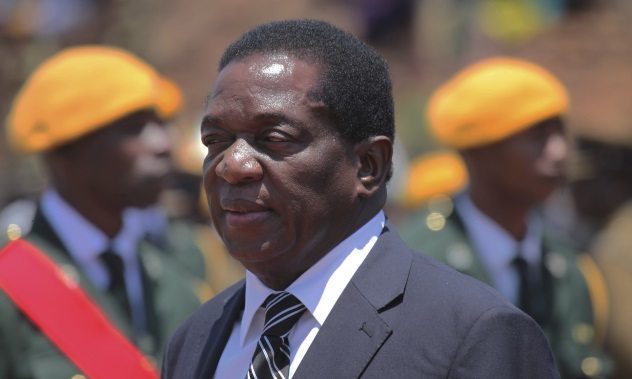This week, the news in the United States was understandably dominated by the second hugely deadly mass shooting in barely a month. Away from that particular tragedy, though, the big news was being made in a surprising place. Saudi Arabia was the focus this week of not one, not two, but three major stories, each of which has the potential to completely shake up the Middle East and possibly the world. We’ll be covering all three, along with the myriad mind-blowing stories that were happening elsewhere.
10 Texas Suffered Its Deadliest Mass Shooting Ever
Barely a month ago, a deranged man opened fire from a Las Vegas hotel into a concert, killing 58 and wounding over 500. It was the deadliest mass shooting in US history, and we’d barely had time to process it before yet another unfolded. This Sunday, Devin Patrick Kelley walked into a church in the small town of Sutherland Springs, Texas, and opened fire. 26 people died in the hail of bullets. It was the worst mass shooting in Texas history. Kelley’s story is a litany of missed opportunities and official incompetence. In 2012, Kelley was convicted in a military court of assaulting his wife and child. That alone should have removed his right to legally buy a gun, but the Air Force forgot to enter that information into the National Instant Criminal Background Check System (NICS).[1] Even more remarkably, it’s now known that he escaped from a mental health facility shortly before the shooting. Had officials shown some basic competence, 26 people would be alive now. The massacre could have been even worse. Kelley only stopped when a local citizen shot him twice. Kelley fled in his vehicle, chased by the man who shot him, who had flagged down a passing motorist. Kelley ultimately crashed his SUV and then shot himself in the head. He died at the scene.
9 Saudi Arabia Conducted An Unprecedented Purge Of Its Ruling Class
Forget all those Saudi stereotypes you have. Right now, the Wahhabist kingdom is in the middle of a full-blown cultural revolution. The religious police have been stripped of their power. Extremist clerics (which, in Saudi Arabia, is most of them) have been jailed. Women’s rights have suddenly been enshrined in law, Western culture has been allowed in, and the economy is undergoing an unprecedented shakeup. This is all the work of one man: Crown Prince Mohammed bin Salman, the future ruler who wants to break Saudi Arabia free from its codependence with Islamist extremism. This week, he showed how serious he was by purging 11 members of the Saudi royal family on corruption charges and sidelining 20 others. It was the first time in modern Saudi history that the ruling class has been targeted en masse for breaking the law.[2] Those arrested were all powerful conservatives who opposed Mohammed bin Salman’s reforms. Even reprimanding them would have been unthinkable just a year ago. The purge shows the crown prince is serious about transforming Saudi Arabia from a theocratic kingdom into something like a modern state. If he succeeds, the ramifications for the Middle East could be enormous.
8 The US Elected Its First Openly Transgender Legislator
The November 7 US elections saw the first gains for Democrats since the Clinton campaign’s collapse. On Tuesday, gubernatorial elections saw the Democrats unexpectedly hold Virginia and gain New Jersey. (They also held New York City, but “Democrat holds New York” is a headline up there with “Bear Relieves Itself in Woods.”) With recounts ongoing, they may have even flipped Virginia’s House of Delegates from red to blue. For a party that’s been on the ropes, this was a much-needed glimmer of hope. But the real historic moment didn’t come in the big-ticket races. It came in Virginia’s 13th District. Former journalist Danica Roem beat incumbent delegate Robert Marshall by ten points. In doing so, she became the first openly transgender person elected as a US legislator.[3] The key word is “openly.” Republican Althea Garrison became the nation’s first transgender legislator in 1992, but she was only outed after her election. (Another openly trans woman, Stacie Laughton, was elected in 2012 but resigned before taking office.) Roem’s win was all the more significant for running against an anti-LGBT opponent who styled himself Virginia’s “chief homophobe.” Her win ends 26 years of Republican control in her district.
7 Lebanon’s PM Unexpectedly Resigned (From Saudi Arabia)
And now for our second major Saudi story of the week. On Friday, the prime minister of Lebanon, Saad Hariri, left his country for a work trip to Saudi Arabia. Not long after arriving, he appeared on television with an unexpected message: He was resigning, and he was terrified that Hezbollah was going to try and kill him. His sudden announcement threatens to send tiny Lebanon spiraling into chaos.[4] Lebanon is a highly unstable state riddled with sectarian tensions left over from its own bruising civil war in the 1980s. With a Sunni prime minister, Christian president, and Shiite parliamentary speaker (roles reserved for each religious affiliation), it’s also a prime target for the next major proxy battle between Saudi Arabia and Iran. Iran’s strategic victories in Syria have left the Sunni Saudis scrambling to maintain influence in the Middle East. With Iran-friendly Hezbollah part of the Lebanese parliament, Riyadh fears a Shia takeover. The international rumor mill has it that the Saudis forced Hariri’s resignation. Whatever the truth, the abrupt departure of the prime minister may destabilize Lebanon. If that happens, expect the competition between Saudi and Iran to escalate in new and terrifying ways.
6 New Caledonia Prepared A Referendum On Independence From France
Sitting just east of Australia, the French territory of New Caledonia is about as far from Paris as Guam is from Washington, DC. Nonetheless, it remained a part of France throughout European decolonization, surviving even bloody clashes between indigenous locals and French gendarmes in the 1980s. Now, though, it may be about to strike out on its own. Last Friday, France agreed to allowing the territory a referendum on self-rule in 2018. The ruling could pave the way to New Caledonian independence.[5] Given the stalled independence dreams in Kurdistan and Catalonia, it’s tempting to think New Caledonia will remain part of France whatever happens. But Paris is at least nominally backing this referendum, and a firm political agreement to hold it now exists. While only 45 percent of the population is indigenous, some of European descent may eventually back going solo. If New Caledonia secedes, it will be the first French province to split off since Vanuatu in 1980.
5 A Yemeni Missile Almost Caused Carnage In Saudi Arabia’s Capital
On Saturday, a ballistic missile flew out of Yemen and streaked through the dark skies above Saudi Arabia’s vast desert before plunging into the capital, Riyadh. It was targeting the city’s main airport and came within seconds of causing catastrophe before the Saudis managed to shoot it down. See what we mean about it being a busy week in Saudi Arabia? The missile was fired by Shiite Houthi rebels waging war against the Yemeni state. Since 2014, they’ve been in effective control of most of the country’s west, including the capital, Sana’a. The Saudis have been bombing them indiscriminately for almost as long. But this missile attack wasn’t seen in Riyadh as mere retaliation for the Saudi air war in Yemen. It was seen as a direct attack on a Sunni Muslim nation by Shia Iran. Iran has been backing the Houthi rebels as a way of spreading their influence in the Middle East. As we saw in the Lebanon entry above, Riyadh has been desperately trying to counter this. The worry is that this missile attack could now spark an actual Saudi-Iranian war, a region-wide punch-up that could make Syria’s conflagration look like a warm-up act.[6]
4 Zimbabwe Saw Its First Serious Challenge To Mugabe’s Power In Decades
Grace Mugabe has one of the most hideous personalities of anyone on the planet. The wife of Zimbabwean dictator Robert Mugabe, Grace made headlines recently by savagely beating a South African model then claiming diplomatic immunity. She’s also widely hated in impoverished Zimbabwe, thanks to a lifestyle that Imelda Marcos would find garish. This week, we saw the first signs that her unpopularity could finally collapse the Mugabe regime. Robert Mugabe is 93. His death in the next few years is pretty much a given. A power struggle has therefore erupted in Harare over who will succeed him. Mugabe’s base and generals prefer his fearsome deputy Emmerson Mnangagwa (pictured above). Grace Mugabe prefers Grace Mugabe. This week, Grace won the power struggle. Mugabe dismissed Mnangagwa. Mnangagwa fled the country, only to claim he will return to Zimbabwe to lead its people. That’s a threat of an uprising right there, and Mnangagwa has much of Zimbabwe’s security apparatus on his side.[7] There’s now a real chance Mnangagwa could implode the Mugabe regime. If Mnangagwa plays his cards right, expect Grace Mugabe to go the way of Chairman Mao’s wife Jiang Qing.
3 The Growing Sexual Harassment Scandals Saw A Tragic Death
You probably don’t know the name Carl Sargeant. A Welsh MP in the Labour Party, Sargeant was for decades merely another obscure politician. That all changed last week, when he was sucked into the vortex of sexual harassment scandals currently sweeping the US media and UK government. Sargeant was dismissed from his job by Welsh first minister Carwyn Jones after anonymous allegations against him surfaced. This is where things get tricky. On Tuesday, Sargeant committed suicide. The stress of not being told the nature of the allegations, combined with a preexisting mental fragility, caused him to take his own life.[8] Sargeant’s death has caused a huge scandal in Welsh politics. It also serves as a warning about how we handle allegations of sexual impropriety. Sargeant was refused details of the accusations against him and was dismissed without a chance to appeal. Not knowing the accusations left him unable to fight them, and seeing no way out, he committed suicide. Laudable as it is that so many are now able to speak up about harassment, Sargeant’s fate is a reminder that we should never forget the bedrock of a modern justice system: that people are innocent until proven guilty. Carl Sargeant was assumed guilty from the start, and that assumption led to needless tragedy.
2 The Final ISIS Stronghold In Syria Was Liberated
ISIS have had an atrocious week. Last Friday, Syrian regime forces pushed them out of their final major stronghold of Deir al-Zour. A few hours later, the Iraqi army retook al-Qaim with barely a fight and then recaptured the terrorist group’s last Syria-Iraq border post. This Thursday, Syria regime forces chased ISIS out of the town of Albu Kamal. It was ISIS’s last urban stronghold in the whole of Syria. Now they control only a handful of villages, some pockets of desert . . . and that’s it.[9] That’s not to say ISIS is a completely spent force. They still have tens of thousands of civilians under their caliphate and showed themselves capable this week of storming an Afghan TV station in Kabul, killing two journalists. But compared to a year, or even half a year, ago, when they still had entire cities under their control? Let’s just say the collapse of their caliphate has been almost as fast and as shocking as its initial formation. The final destruction of ISIS is now only a matter of time. But that doesn’t mean the world can be complacent. Future terrorist attacks from ISIS-inspired jihadists remain a sad possibility.
1 The Financial Secrets Of The Elite Were Exposed
Remember the Panama Papers? The biggest leak in history saw the financial dealings of the wealthy exposed and led to governments collapsing. 18 months later, the sequel is here. The “Paradise Papers” leaked this week and contain information on how the super-rich were able to hide trillions of dollars through (legal) offshore accounts. The revelations have left many famous and important people in a deeply embarrassing position.[10] Among those named and shamed for avoiding taxes were U2 front man Bono, US secretary of commerce Wilbur Ross, a top aide to Canadian prime minster Justin Trudeau, the company Apple, and Queen Elizabeth II. The Ross revelations include murky links to Russian businessmen on the sanctions list, while the Trudeau aide, Stephen Bronfman, may have fleeced Canada out of millions of tax dollars. It’s important to note that all of the behavior in the leaked documents is completely legal. The outrage stems from the perception that it is immoral, with one rule for billionaires and another for everyone else. Time will tell if this leak sees international law changed to stop such dubious behavior.
























